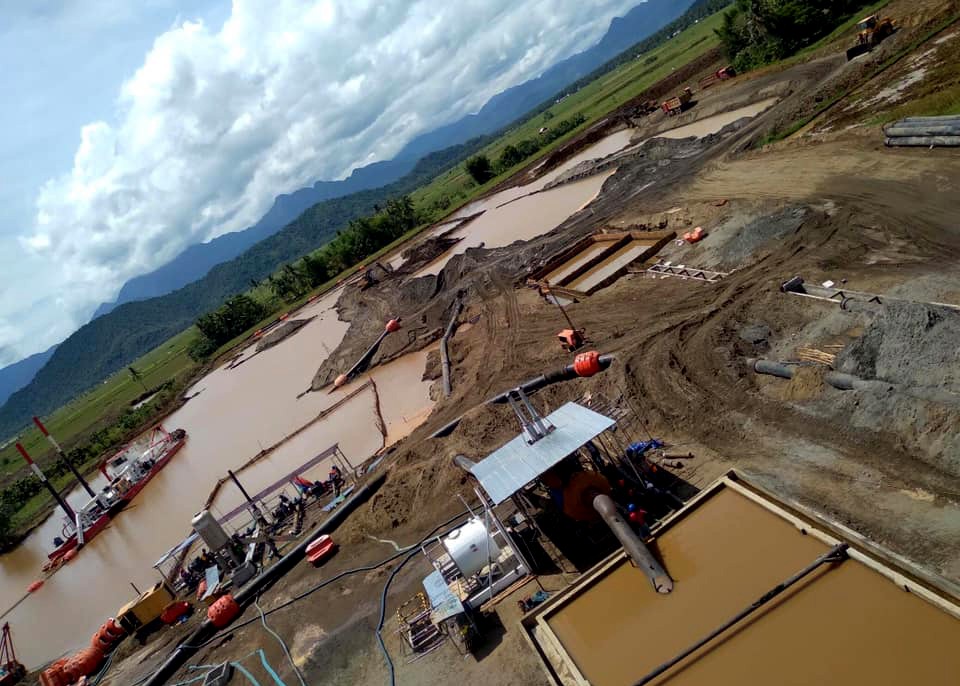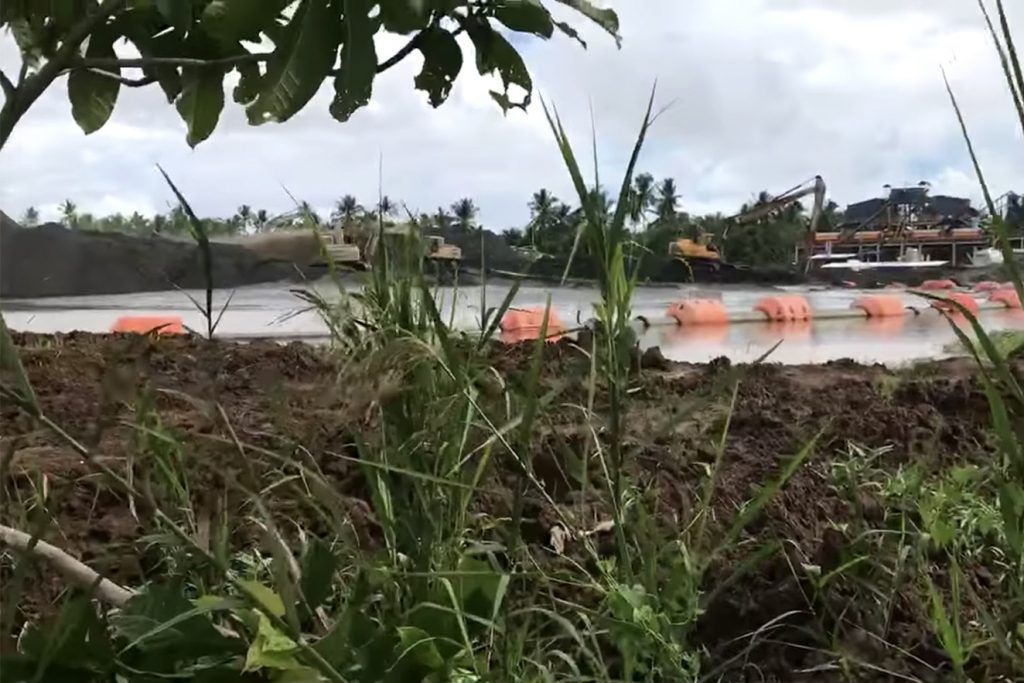
They know it’s destructive. They heard the criticisms and condemnations. But the poor villagers said working in the mines is the only way out of poverty.
Pepito Guimalan, 50, said he was in debt for so many years, and like his neighbors in the village of Maya in the town of MacArthur in the central Philippines, he wanted to find a way out of poverty.
When a mining company came to town, Guimalan said they found reason to hope that life can be better.
Up to 300 villagers were hired as laborers, timekeepers, and kitchen staff, earning a minimum salary of about US$7 per day, higher compared to the US$4 they usually earn from working in the rice fields.
About 2,000 hectares of mining claims have been reportedly granted by the government to McArthur Iron Sand Projects Corp., which runs the local operation of Strong Built Mining Development Corp.
The mining project reportedly covers the towns of McArthur, Abuyog, and Javier.
Black sand is an additive in concrete and steel production and for the manufacture of jewelry and cosmetics.
“I was not earning in my farm for three years due to floods and pests,” said the farmer. “At first, I opposed [mining]. But I changed my mind after I saw the good things,” said Guimalan.
The village council, which Guimalan heads, has approved the “piloting” of black sand mining operations in the village’s farms.
Guimalan himself leased his seven-hectare farm to the MacArthur Iron Sand Project Corporation for about US$5,600 per hectare for two years.
The village leader said he would stop the mining operation if the company violates the conditions in the agreement, including the rehabilitation of already mined fields.
He said the mining company vowed to help the village formulate a development plan, build a water system, school buildings, street lights, a basketball court, and other infrastructures.
Guimalan appealed for “understanding” from those who oppose the mining operations. “Mining is already here,” he said. “We can stop it if the company will not make good of their promise,” he said.

A spokesman of the mining company said “rehabilitation” of areas already mined was “ongoing” and they “will not leave any hole unfilled.”
Anti-mining activists, however, voiced concerns over what they described as the impending “environmental destruction” of the town of MacArthur.
Among the issues raised by the activists was the “lack of social acceptability” and alleged “non-compliance” of the mining operators to environmental and agriculture laws.
Fara Diva Cortez of the non-government Freedom from Debt Coalition said the mining issue “is really divisive,” citing how people in the communities react to the situation.
She blamed “lack of education” and the government’s failure to empower communities to help them look into either the “negative impacts” or the “benefits” of mining.
Jaybee Garganera, national coordinator of the Anti-Mining Alliance, called for an immediate stop to the mining operation in the area.
He said the mining operation “goes against the apparent recognition of the administration [of President Rodrigo Duterte] that we are now in a climate emergency.”
“If this is true, then there should be less mining, and not more,” he said in a statement.
The national government has earlier said that mining can generate additional revenue for the fight against the coronavirus pandemic.
Source: Licas Philippines
0 Comments